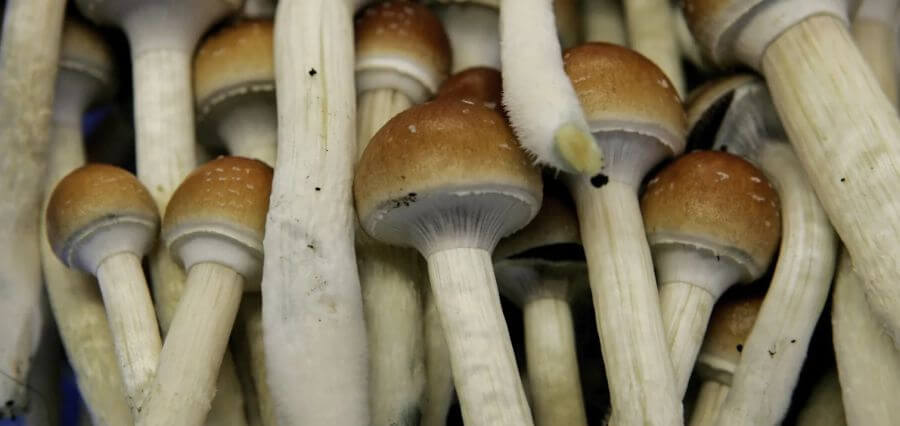A recent study funded by the Beckley Foundation found that psilocybin mushrooms may be an effective treatment for depression. The study measured brain function in healthy people who had taken psilocybin and found that it improved connectivity between different areas of the brain. Although more research is needed to confirm these findings, if they hold up, psilocybin mushrooms may offer a promising new treatment option for depression.
What is Psilocybin?
Psilocybin, a compound found in “magic mushrooms”, has been shown to have antidepressant effects in a small number of scientific trials. However, the majority of research on psilocybin has been conducted in the context of treating addiction, and there is little evidence that it can be used clinically to treat major depressive disorder (MDD).
Some people believe that psilocybin may help improve symptoms of MDD by restoring balance in brain circuits that are dysfunctional in people with the condition. Psilocybin has also been shown to decrease anxiety and depression-related behavior problems. However, more research is needed to confirm these benefits.
How Does Psilocybin Affect the Brain?
Psilocybin is a psychoactive compound found in certain mushrooms. It has been shown to have positive effects on mood and anxiety in some people, but the research on its effects on depression is still inconclusive. Some studies show that psilocybin can be helpful for treating depression, while other studies say it is only modestly helpful. The main thing that seems to matter is how well the person responds to treatment, with different people showing differing benefits from taking psilocybin.
Are Psilocybin Mushrooms Safe?
Psilocybin mushrooms edibles have been used for centuries in many parts of the world as a natural remedy for anxiety, depression, and other mental health issues. However, there is still some unknown about the safety and long-term effects of psilocybin mushrooms.
Studies on humans are limited, but so far evidence suggests that psilocybin is relatively safe when used in moderation. There have been no reports of serious side effects from using psilocybin mushrooms for treatment purposes. However, more research is needed to confirm the safety and efficacy of these treatments.
Some people report improvements in symptoms after using psilocybin mushrooms, while others do not experience any noticeable changes. It’s important to note that everyone’s experience with this therapy will be different.
Could Psilocybin Help Treat Depression?
Depression is a serious mental disorder that can impact many aspects of a person’s life. It can cause feelings of sadness, hopelessness, and emptiness, as well as physical symptoms such as fatigue, weight loss, and headaches. Treatment options for depression are available and include medications, therapy, and lifestyle changes.
One potential treatment option for depression is psilocybin mushrooms. Psilocybin is a psychedelic compound found in some species of mushrooms. It has been used for centuries in traditional medicine to treat conditions like anxiety, depression, and addiction. Studies have shown that psilocybin can help relieve symptoms of depression in people who have had difficulty tolerating conventional treatments.
There are several benefits to using psilocybin for the treatment of depression. Psilocybin has anti-inflammatory properties which may help reduce inflammation caused by stress or psychological factors associated with depression. Psilocybin also appears to interact with the brain’s serotonin system in a way that is beneficial for treating depression. Finally, psilocybin is relatively safe compared to other antidepressant medications and does not appear to lead to long-term adverse effects like suicide or addiction.
While there are still some questions about the effectiveness and safety of using psilocybin for the treatment of Depression, this emerging treatment option may be worth considering for those who don’t respond well to traditional treatments.
Research on Psilocybin for Depression
There is growing evidence that psilocybin can be helpful for depression, and in some cases it appears to be as effective as medications currently available.
Psilocybin has been shown to have antidepressant effects in a number of small studies, and a recent large study found that it was more effective than placebo at treating major depression. Interestingly, these benefits appeared to persist after the trial ended, suggesting that psilocybin may be an effective long-term treatment option for depression.
There are a few potential reasons why psilocybin might be effective for treating depression. First, it seems to increase openness and honesty in conversations between patients and therapists, which could lead to increased self-awareness and improved treatments. Second, it seems to improve mood by increasing feelings of well-being and pleasure. Finally, it can also help reduce anxiety and stress symptoms.
While there is still much research needed on the effects of psilocybin for depression, these findings suggest that it could be an important new treatment option for people with this condition.
The Bottom Line on Psilocybin for Depression
According to a study published in the journal Psychopharmacology, psilocybin may be an effective treatment for depression. The study, conducted with mice, found that exposure to psilocybin increased serotonin levels in the brain and improved symptoms of depression.
While more research is needed to confirm these findings, if they are borne out in humans, psilocybin could become a new option for treating depression.









